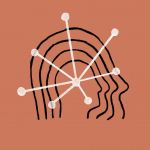American companies are building services on Chinese AI models

A quiet coup is happening in Silicon Valley. American companies are increasingly building their services on Chinese AI. On DeepSeek, Qwen and Kimi. And this despite the fact that the US and China are conducting a practically open technology race. The reason is simple. Chinese models are cheaper, more performant and open.
I told in one of the previous episodes how Airbnb head Brian Chesky admitted that the company relies on Qwen models from Alibaba for the new assistant in the app. His words, quote: “Very good, fast and cheap”. And integration with ChatGPT, in his opinion, is not ready yet. Chamath Palihapitiya from Social Capital is also moving loads to Chinese Kimi K2, because it, quote “is much more performant and an order of magnitude cheaper” than OpenAI and Anthropic.
But these are not isolated cases. This is a systemic shift. The reason is banal: price, speed and freedom. Chinese models can be downloaded, fine-tuned and run locally. This reduces privacy risks and saves on subscriptions. The developer country becomes secondary. If the model works stably and doesn’t bankrupt, it wins.
It turns out American companies created the problem themselves with their closedness. Chinese open the weights of flagship models, and Americans either ignore open source or release worse versions. Now business is voting with wallets.





